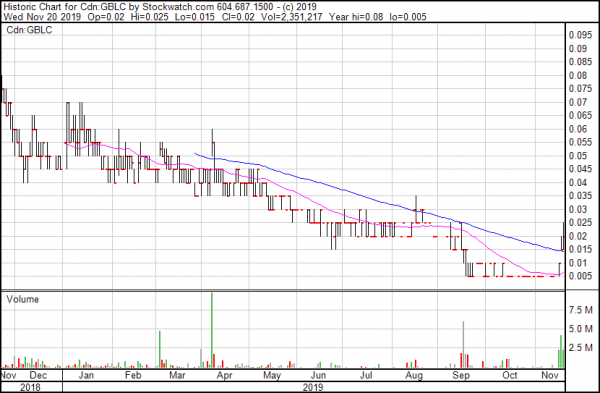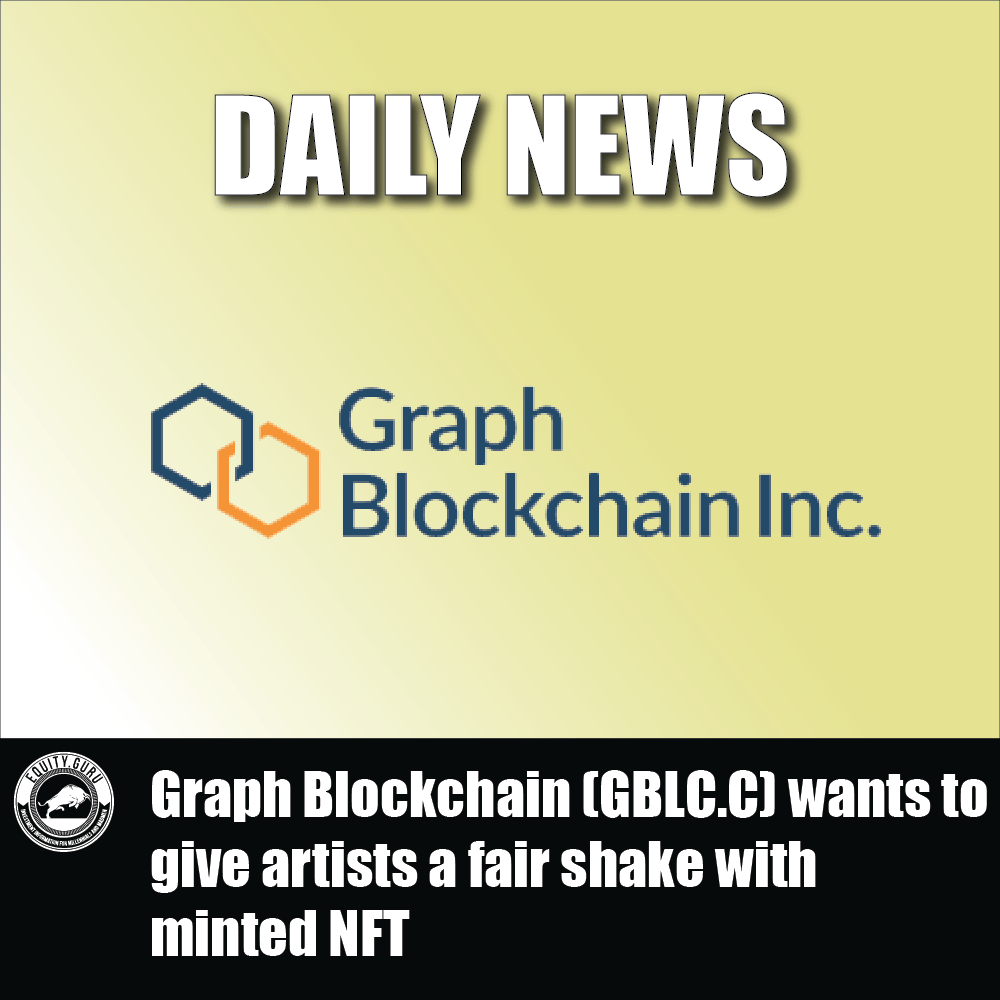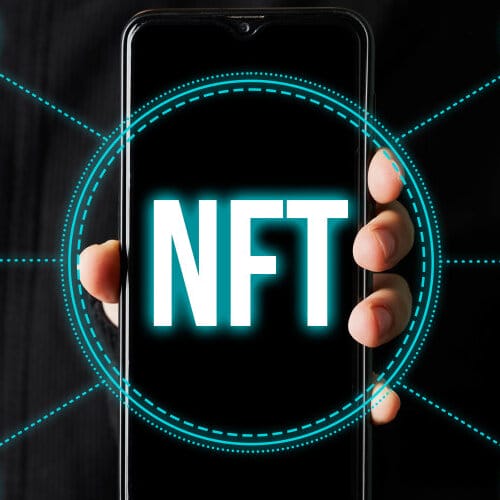Let’s not mince words. Graph Blockchain (GBLC.C) has been circling the drain for awhile, flailing about to find something—anything—to grab onto for a lifeline.
In April, it was Esports. The market for blockchain solutions in North America was down, and they were looking to diversify. By all accounts, Esports were picking up. It seemed like a natural fit. They could funnel vital game statistics, and maybe offer games, on their blockchain platform.
They landed on Blockchain Innovations and their subsidiary, The Games Company, which would have given them a toe-hold in digital casino gaming.
That fell through.
Here’s Graph interim CEO Jeffrey Stevens,
“While we are disappointed with the termination of the LOI, we determined that, through the course of our negotiations and due diligence, that we could not proceed with the terms of the transaction as some of the terms were not in our shareholders’ best interest.”
That’s fair.
After that, they Esports Capital to help them find more acquisition targets so they can get their feet wet, meanwhile they brought in five-figure revenue drips from existing deals in Korea that won’t help them over here. Next up, in August, came Cyberanking, “a gamified learning management system company focused on the e-sports industry.” And that fell apart within a month, and with it went their relationship with Esports Capital.
Stevens offered the following excuse:
“It is frustrating to be in this position, especially when our operational team has done a great job securing world-class customers and producing great products. Unfortunately, the capital markets are not interested in blockchain companies and our attempts to find a complementary e-sports or gaming deal to pivot the company into that industry has not proven successful.”
What products might he be referring too? How about these ‘world-class customers?’ The city of Seoul, Korea is easily a ‘world-class customer,’ sure, but the pricetag on their contracts thus far hasn’t come close to six figures for their work on the city’s smart-cities initiative. This is one of the richest metropolitan cities in the world—you would think maybe they would shell out for such a valuable company, offering such a valuable service? How about their contracts with LG and Samsung? How come they haven’t shown up on the balance sheet under the revenue column?

Except maybe they’re not that valuable. If one deal falls through, it’s easy to shrug your shoulders and point the finger at the other side. But three? Three establishes a pattern. Maybe the problem is you.
That brings us to today’s letter of intent (LOI) to acquire Shroom Street, a psychedelic focused brand developing a psychedelic truffle e-commerce marketplace, lifestyle brand, and media company that covers developments in psychedelic science, activism and investing.
The LOI has it that Graph is going to buy the company for $1 million in shares at $0.05 a piece.

A quick cursory glance at the balance sheet shows a company that’s almost dead.
This company shares aren’t even remotely close to $0.05, and haven’t been the start of this year. Their stock has actually been on a steady downward decline as they’ve somehow managed to miss the boat entirely on the Bitcoin bull run during the summer. They’re diluting their stock even further with this (and every acquisition) because with the exception of their two latest payments from Korea, their cash position is four figures and their deficits are substantially more than their assets (so say goodbye to their Korea money,) and that’s not even considering the entirety of their liabilities. Oh, and no revenue.
It’s entirely possible that this shroom deal could mean excellent things are in store for Graph, because as far as products on a blockchain go, shrooms isn’t a bad choice.
“Implementing our private blockchain solutions into Shroom Street’s online marketplace will ensure the integrity and security of all transactions on the company’s e-commerce marketplace. The growth of the Cannabis industry has been staggering and the investors who were early enough profited greatly. Investing in medicinal mushrooms in 2019 is looking to generate returns like those experienced in Cannabis 6-7 years ago and we are excited to be a part of it,” said Stevens.
We’re equally bullish that shrooms has the potential to be the next big thing (or else why would we put out a sister-site?) but it’s equally possible that it doesn’t take off, or gets mired in legislative hell for the next decade while the pearl clutchers in Ottawa wring their hands about the moral direction of its citizens. We don’t know. It’s a gamble.
Here’s the value proposition:
If it does take off (and Graph doesn’t somehow botch the deal), then Shroom Street will give Graph first mover advantage and sufficient connections to experts and suppliers in the industry. The blockchain technology’s immutability function will make gliding through regulatory hoops easier, because it will give every data point on the supply chain from grower to consumer. Real-time visibility, verification and transparency of the supply chain will protect consumers and the company from risk.
While the rest of the world mulls over the idea of legal psychedelics, Graph and Shroom Street can take heart that psilocybin mushrooms are legal in Brazil, Jamaica, Netherlands and Samoa. So maybe now they can be big in more than just Korea.
—Joseph Morton






